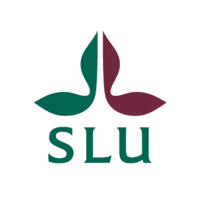
Advertiser's description (via SLU):
About the department
The Department of Urban and Rural Development at SLU offers a strong social science research environment in environmental communication, rural development, landscape architecture and agrarian history. We are now recruiting a PhD candidate in the Division of Environmental Communication, in a project on “The properties and relations of maize: a multispecies study of the role of crop biotechnology in African smallholder farming”. Environmental communication is a field of interdisciplinary qualitative social science exploring how people construct and negotiate meaning related to environmental and sustainability issues and the implications for human-environment relationships.
Read more about our benefits and what it is like to work at SLU at https://www.slu.se/en/about-slu/work-at-slu/
About the role
The PhD position is part of a project that adopts multispecies perspectives on agrarian change in South Africa, using maize as a lens for a wider analysis of factors that shape smallholder agriculture trajectories. This might include analyses of how insect-resistance or drought- tolerance properties in crops produce certain outcomes and how these properties are enacted as a result of relations with other human and non-human actors. We will work with South African smallholders to investigate how locally used maize varieties are appreciated and used; how maize is entangled with smallholders’ practices, insects, and agricultural policies as well as wider political economies and ecologies to produce outcomes across time and space. The result will be an improved understanding of the wider set of factors that together impact whether or not smallholders can benefit from new crop technologies.
The PhD student is expected to spend several months in smallholder communities in rural South Africa, studying the relations of maize through ethnographic methods. The student will also investigate the wider (in time and space) discursive and material factors that shape local and contemporary multispecies relations. If the recruited PhD student is not fluent in isiXhosa, they will work closely with an interpreter. The PhD student will lead publications co-authored with the project team, and contribute to publications led by other team members. The position will demand that significant amount of time is spent both in Sweden and in South Africa.
The selected candidate will shape the details of the PhD research in collaboration with the project and supervisory team, including Klara Fischer (main supervisor) and Rachel Wynberg (co-supervisor). The recruited PhD student will benefit from a vibrant and collegial research environment in the division of Environmental communication where PhD work is expected to include active participation in the division’s academic activities. The research project that this PhD position is part of will contribute to the development of research in environmental communication focusing on the communicative dimensions of agrarian change. The research field of agrarian change is an interdisciplinary social science field studying the production and reproduction of social relations in the agrarian sphere, often with a focus on property and power, and with an historical lens. Communication impacts agrarian change from micro-level advisory encounters, to macro-level global policy discourses, shaping policy priorities and investment. The PhD student will also form part of a growing and dynamic team in the Bioeconomy Research Chair at the University of Cape Town
Qualifications
Master’s degree in a relevant subject leading to documented acquired competence in qualitative social science methods and social theory (suitable subjects include but are not limited to environmental communication, human geography, anthropology, sociology). Experience in theoretically grounded, qualitative empirical research. Excellent English skills, written and spoken.
Additional desirable qualifications
Practical or theoretical knowledge of agriculture, experience from smallholder farming contexts, interest in interdisciplinary work and more than human/ multispecies perspectives. Personal suitability will be taken into account.
Place of work
Uppsala






